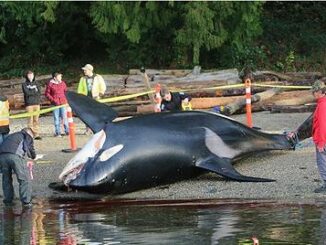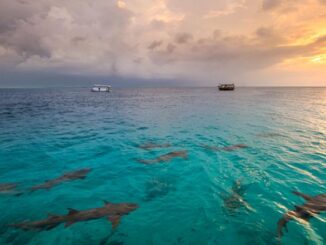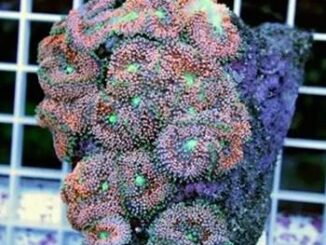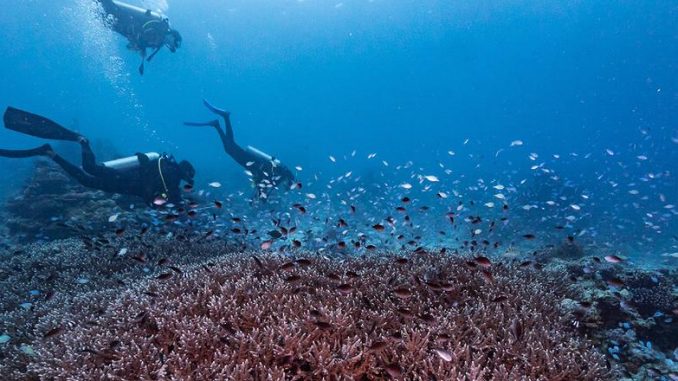
ARLINGTON, Virginia, August 9, 2021 (ENS) – A new ocean conservation initiative is gathering force to protect 18 million square kilometers (seven million square miles) of the ocean over the next five years – an area twice the size of the continental United States and larger than the continent of South America.
Called the Blue Nature Alliance, the initiative is a collaboration among five high-profile entities: two of the world’s larger environmental groups – Conservation International and The Pew Charitable Trusts; two charitable foundations, Australia’s Minderoo Foundation, and the Rob and Melani Walton Foundation, rooted in the Walmart empire, and the Global Environment Facility, which is the world’s largest multilateral trust fund focused on enabling developing countries to invest in nature.
Based in Arlington, the Blue Nature Alliance aims to expand and enhance ocean protections with a focus on working alongside indigenous peoples and local communities, scientists and academia, and other partners, including governments, to help the world conserve 30 percent of the oceans by 2030.
The Blue Nature Alliance is working with governments and other partners on large-scale efforts in Fiji’s Lau Seascape, Antarctica’s Southern Ocean, and Tristan da Cunha to collectively secure protections over 4.8 million square kilometers (1.9 million square miles) of the ocean.
Ambassador Peter Thomson of Fiji, United Nations Secretary-General’s Special Envoy for the Ocean, believes the Alliance can make a difference. “The health of the ocean will ultimately determine the survival of humankind on our planet. We all share responsibility for the decline in the ocean’s health and the measures required to restore and sustain it,” he said. “With activities grounded in the best available science, the Blue Nature Alliance is expected to greatly expand much-needed conservation of key ocean ecosystems.”
Turaga Roko Sau, Josefa Cinavilakeba, community and government relations director for the nonprofit Pacific Blue Foundation in Fiji, speaks of the gratitude of the Fijian people.
“We are small remote islands scattered over the vast ocean with limited resources. We have a traditional governance system based on spiritual connections to our natural resources and our strong faith in almighty God. Like our traditional canoes, our traditional leaders have developed unique qualities through generations for leading our people in a sustainable way,” Cinavilakeba said.
“The Blue Nature Alliance has provided the much-needed support to integrate scientific conservation efforts with our own, propelling us to the future as a more resilient community ready to face future challenges,” he said.
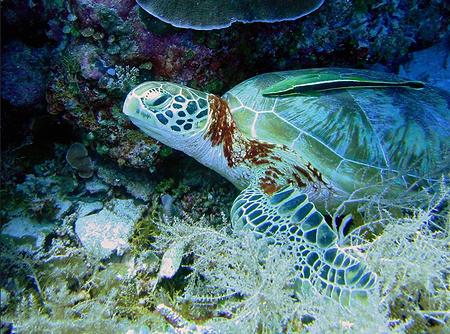
The Alliance will soon engage in efforts in Canada, Palau, Seychelles, and the Western Indian Ocean with the goal of strengthening and enhancing the protection of nearly two million square kilometers (734,000 square miles) of ocean.
President of the Republic of Palau Surangel S. Whipps, Jr. said, “We are excited to partner with Blue Nature Alliance to strengthen the management of the Palau National Marine Sanctuary and to ensure that the Palauan communities will benefit from the sanctuary and development of the domestic fishery.”
Eighteen additional Blue Nature Alliance engagements have been identified across North and South America, Europe, and the Asian Pacific region.
“A healthy ocean is key to our existence. It provides nutrition and employment for a majority of people around the world and half of the oxygen each of us breathes. Yet significantly less of our ocean is protected when compared to land,” said ‘Aulani Wilhelm, senior vice president of oceans for Conservation International and a former NOAA superintendent of the Northwestern Hawaiian Islands Marine National Monument.
“We must collaborate globally, in partnership with local governments and indigenous peoples, to make the conservation of our ocean a priority. The time is now to take big practical action to move this work forward,” Wilhelm said.
The world’s oceans are facing threats from climate change, damaging fishing practices, and pollution.
Science shows that protecting and conserving large areas of the ocean is necessary to support the air we breathe, regulate the climate, and maintain essential levels of biodiversity, the Alliance says on its website.
“From the coastlines to the high seas, we need to tackle conservation holistically and in partnership. Our collective efforts will help secure a healthy ocean that is more resilient to climate change and yields benefits to both nature and people,” said Tom Dillon, senior vice president for environment at The Pew Charitable Trusts.
“To boost biodiversity, fisheries, and economies, the Blue Nature Alliance will work with partners globally to apply science and lessons learned, and build on best practices to conserve our ocean at scale,” Dillon said. “We need this type of ambition to address the challenges facing our ocean today.”
30 Percent By 2030
The Blue Nature Alliance supports the effort to protect at least 30 percent of the ocean by 2030, a global conservation goal expected to be formally adopted at the United Nations Biodiversity Conference later this year.
To date, less than 10 percent of the global ocean is protected. The 30 percent goal is widely agreed upon as the threshold needed to maintain a resilient and functioning ocean that supports the health of people and nature.
“Conserving 30 percent of the world’s land and sea in the coming decade will require all of us to work together, with science as our North Star,” said Carlos Manuel Rodriguez, chief executive and chair of the Global Environment Facility based in Washington, DC.
“It is heartening to see collaborative work underway in the South Atlantic, South Pacific, and Antarctica’s Southern Ocean, and with work about to begin in even more locations around Palau, Seychelles, Canada, and the Western Indian Ocean,” Rodriguez said.
Through the Blue Nature Alliance, the GEF will be “contributing significantly to the 30 percent global ocean conservation goal and ensuring we have momentum to build on as we strive for our 2030 ambitions,” he promised.
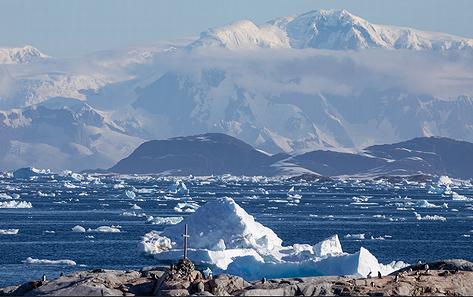
To achieve its ambitious goal, the Blue Nature Alliance is creating a global network of partners dedicated to building on lessons learned from well-functioning marine protected areas and innovating new approaches to conserving large ocean areas, many of which have heavily incorporated the traditional knowledge and needs of local communities and governments into their long-term management plans – a practice that helps ensure resilience, both in funding and implementation.
“Engaging with local communities is essential to the long-term success of ocean conservation efforts,” said Dr. Tony Worby, CEO of Flourishing Oceans at Australia’s Minderoo Foundation, one of Asia’s largest philanthropies, with A$2 billion in the bank.
“Local communities rely on the ocean directly for livelihoods, cultural activities and recreation, so it is critical that they are involved in decision making that supports long-term sustainability,” Worby said. “A measure of success for the Blue Nature Alliance will be to build community support for ocean conservation measures that are enduring.”
“Melani and I care deeply about the future of our planet and the communities that depend on nature for their health, livelihoods and culture,” said billionaire Rob Walton, the former CEO of Walmart, heir to the Walmart empire, and co-founder of the Rob and Melani Walton Foundation. “That’s why we are pleased to be part of the Blue Nature Alliance – which brings together philanthropists, businesses, governments and NGOs to substantially increase and improve ocean conservation. Now is a critical time. The ocean is under immense pressure, and we all have a responsibility to help safeguard it.”
In addition to its five founding partners, the Blue Nature Alliance’s growing network includes world-renowned conservation experts, scientists, and financial strategists including Big Ocean, the Global Island Partnership, the Gordon and Betty Moore Foundation, the Murphy Family Foundation, Nekton, Oceana, Ocean Unite, the Tiffany & Co. Foundation, and SkyLight Surveillance and Enforcement Technology.
Featured image: Divers on a coral reef at Waiyevu, Northern, Fiji, July 27, 2018 (Photo by Vlad Karpinsky)
© 2021, Environment News Service. All rights reserved. Content may be quoted only with proper attribution and a direct link to the original article. Full reproduction is prohibited.

